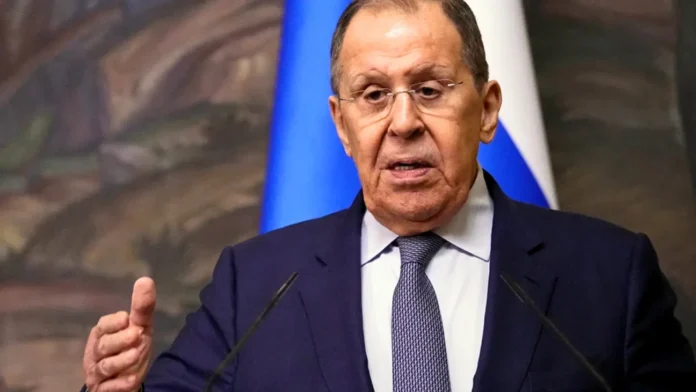Russian Foreign Minister Sergey Lavrov pushed back Sunday against remarks made by German Chancellor Friedrich Merz, who recently drew a parallel between modern Russia and Nazi Germany.
Speaking during a visit to Kyrgyzstan, Lavrov called the comparison “astonishing” and questioned its seriousness. “I don’t recall Czechia, Poland or any other country invaded by Nazi Germany banning the German language, destroying monuments to Goethe or Schiller,” Lavrov said.
He also pointed to historical incidents to draw his own comparisons. “German Nazis burned Jews just for being Jews. Ukrainian nationalists burned Russians in Odessa on May 2, 2013, just for being Russians,” he added.
Lavrov said Moscow remains open to working with European leaders but only under what he described as fair conditions. “We are not ready for the dishonest methods pushed by certain European officials,” he stated.
So, the Russian president is visiting this beautiful lakeside town in Kyrgyzstan, officially for meetings before a big regional summit. But the real elephant in the room is migration.
Russia recently changed its entry rules, and it’s making a lot of people in Kyrgyzstan nervous—so nervous, in fact, that you’re even seeing commentators ask if staying in the EAEU trade bloc is a good idea anymore.
Kyrgyz Deputy Prime Minister Daniyar Amangeldiev earlier said long queues and system flaws are creating problems for citizens seeking work in Russia. “These issues are not caused by our labor migrants,” he said.
Lavrov acknowledged the challenges and said Russia values Kyrgyz workers. “The Kyrgyz side wants their citizens to feel secure when working in Russia,” he said. For that to happen, he added, legal status must be clearly established.
Sure, the official statements were all polite. You had Lavrov and his Kyrgyz counterpart talking about mutual understanding. But that’s just diplomatic cover.
The real story? This visit is just one leg of Lavrov’s Central Asia marathon. He’s hit Kazakhstan, Uzbekistan, Turkmenistan—you name it. It’s all part of Moscow’s big power move in the region.
And how did he wrap things up? By changing the subject completely. He started talking about the huge, beautiful lake nearby, calling it “a treasure of Eurasia.” It was a smooth way to end a tense visit on a friendly note.
The diplomatic talks and sharp exchanges suggest that while ties in Central Asia remain active, tensions with parts of Europe are unlikely to ease soon.

